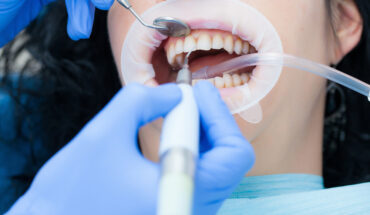Overview
Wisdom teeth, also known as third molars, usually appear in the late teens or early twenties. While some people have no issues with their wisdom teeth, others experience discomfort, pain, and even infection due to their eruption. In such cases, the dentist may recommend wisdom tooth extraction as the only option. However, this procedure carries its own risks and complications.
The reasons for extraction
Often extraction of wisdom teeth is the only option when they cause pain, decay, gum disease, infection, or damage to other teeth.
- Wisdom teeth can grow sideways.
- It can partially emerge from the gum.
- It can remain trapped beneath the gum and bone, causing a host of problems.
Extraction can prevent further damage and promote oral health. That being said, wisdom tooth extraction is a surgical procedure that requires careful consideration and preparation.
Recent Study
According to a recent news article from a news magazine, a man died two weeks after a routine wisdom tooth extraction at a Chinese dental hospital. The man’s cause of death was reported to be septicemia, a life-threatening complication of infection. Septicemia occurs when bacteria from the infection enter the bloodstream, causing widespread inflammation and organ damage. While this case is extreme, it highlights the potential risks of wisdom tooth extraction.
Risks and Complications
-
Dry Socket
One of the most common complications of wisdom tooth extraction is a dry socket. A dry socket occurs when the blood clot that forms in the socket after the tooth extraction dislodges or dissolves, leaving the bone and nerve exposed. This can cause severe pain, bad breath, and a delay in the healing process. Fortunately, dry socket can be easily treated by the dentist or oral surgeon with a medicated dressing.
-
Nerve Damage
Another complication of wisdom tooth extraction is nerve damage. The wisdom teeth are located close to the nerves that control the sensation and movement of the tongue, lips, and chin. In rare cases, the nerve can be bruised, stretched, or damaged during the extraction, leading to numbness, tingling, or weakness in the affected area. This can be temporary or permanent, depending on the extent of the damage.
Other Physical Conditions
In addition, wisdom tooth extraction can lead to:
- Bleeding
- Swelling
- Infection
This especially happens if the patient does not follow the postoperative instructions. It is important to avoid strenuous physical activity, hot foods, and hard or crunchy foods for a few days after the procedure to allow the extraction site to heal properly. Most dentists recommend taking painkillers and using ice packs to manage the pain and swelling.
Psychological Risks
In addition to the physical risks of wisdom tooth extraction, there are also psychological risks. Some people may experience anxiety, fear, or depression before or after the procedure. This can be due to the fear of pain, anesthesia, or surgery, or the uncertainty of the outcome. The dentist or oral surgeon can address these concerns and provide reassurance and support.
Why Patients need Prompt Medical Attention
Most dentists cater to an emergency when it comes to wisdom tooth extraction. However, emergency dentistry can be a time-sensitive issue. Delaying treatment can worsen the condition and increase the risk of complications. Therefore, it is essential to seek prompt medical attention if you experience severe pain, swelling, bleeding, or fever after the extraction.
Pre-Operative proceedings
Before undergoing wisdom tooth extraction, it is important to inform the dentist or oral surgeon about your medical history, current medications, allergies, and any previous surgeries or complications. This will help the healthcare provider to assess your suitability for the procedure and make any necessary adjustments to ensure your safety and well-being.
Some medical conditions, such as diabetes or heart disease, may require additional precautions or medication adjustments before the procedure. Similarly, certain medications, such as blood thinners or antidepressants, may need to be temporarily discontinued or adjusted before the extraction to reduce the risk of bleeding or other complications.
By providing your dentist or oral surgeon with accurate and comprehensive information about your medical history and current medications, you can help ensure a safe and successful wisdom tooth extraction procedure.
Conclusion
In conclusion, wisdom tooth extraction is a common dental procedure that can provide relief from pain and discomfort caused by problematic wisdom teeth. However, this procedure is not without risks and complications, including dry socket, nerve damage, bleeding, swelling, and infection. It is important to choose a qualified and experienced dentist to perform the extraction and to follow the postoperative instructions carefully to minimize the risk of complications. While rare, the potential risks of wisdom tooth extraction should not be taken lightly.
If you are experiencing pain or discomfort due to wisdom teeth, it is important to consult with a qualified dentist to determine the best course of action.





